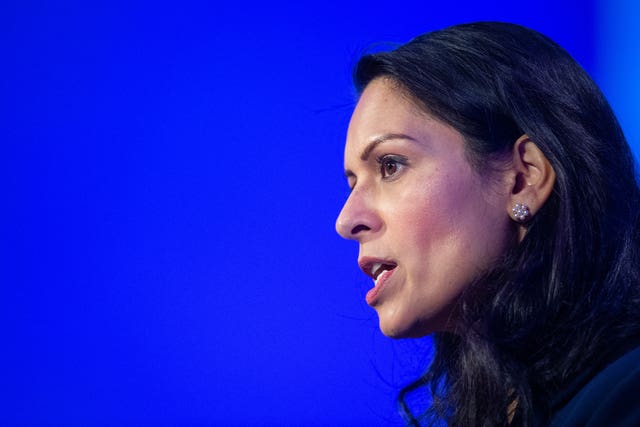
Foreign criminals sentenced to more than a year in jail could be banned from entering Britain under new immigration rules.
The Government revealed more information on how the new points-based immigration system – which is due to come into force on January 1 after freedom of movement ends – could work.
Papers published on Monday confirmed intentions to refuse entry to those with a conviction carrying a custodial sentence of at least 12 months.
The change would mean criminals from the European Union are treated the same as currently happens to those from non-EU countries.
Under the present rules, convicted criminals from the bloc can only be excluded on a case-by-case basis.

A policy document said: “A robust and consistent approach to applying the UK criminality thresholds for the refusal of entry, permission to remain in the UK, deportation and exclusion, to EU and non-EU citizens, will be taken as part of the points-based System.”
It added that those seeking to come to the UK can also be refused where they have:
– Committed an offence which caused serious harm;
– Are a persistent offender who shows a particular disregard for the law;
– Their character, conduct or associations means their presence is not conducive to the public good.
Anyone already in the UK who has been sentenced to a year or more in prison “must be considered for deportation”, the papers add.
The document said: “Where the 12-month criminality deportation threshold is not met, a foreign criminal will still be considered for deportation where it is conducive to the public good, including where they have serious or persistent criminality.
“For EU citizens who are protected by the Withdrawal Agreement or the UK’s domestic implementation of the withdrawal agreements, the tougher UK criminality thresholds will apply to conduct committed after the end of the transition period.
“The EU public policy, public security or public health test will continue to apply to their conduct committed before the end of the transition period.”
It said the enforcement system would be “fair, protects the public, upholds our immigration policies, and acts as a deterrent to those who might seek to frustrate those policies”, adding: “Those who breach our immigration laws and rules place themselves at risk of exploitation by unscrupulous bodies such as organised crime groups and rogue employers and landlords.”
The new immigration system is designed to cut the number of low-skilled migrants entering Britain from the beginning of next year, but aims to make it easier for higher-skilled workers to get UK visas.
People who want to live and work in the UK will need to gain 70 points to be eligible to apply for a visa.
Points will be awarded for key requirements like being able to speak English to a certain level, having a job offer from an approved employer, and meeting a minimum salary threshold.
A health and care visa will provide a visa route for key health professionals to work in the UK, while a graduate route will allow international students to stay in the UK for at least two years after completing their studies, the Government also announced.
But social care workers will not be able to take advantage of the new NHS visa, Downing Street confirmed.
The Prime Minister’s official spokesman said: “We want employers to invest more in training and development for care workers in this country.
“On care workers specifically, our independent migration advisers have said that immigration is not the sole answer here, which is why we have provided councils with an additional £1.5 billion of funding for social care in 2021/22, as well as launching a new recruitment campaign.”
Existing European Union workers in the care sector could apply to stay in the UK through the settlement scheme “and a very large number have done so”, the spokesman said.
Boris Johnson said the UK will have a “humane and sensible” immigration system despite “taking back control” after Brexit.
Asked if he thinks there will be enough people coming in to work in the social care system, the Prime Minister told reporters: “I do,” adding: “Although of course we are going to be taking back control and we are controlling our immigration system we’re not going to be simply slamming the gates and stopping anybody anywhere coming into this country.
“Where people can contribute to this country, where people want to make their lives and do great things for this country, of course we’re going to have a humane and sensible system.”


Comments: Our rules
We want our comments to be a lively and valuable part of our community - a place where readers can debate and engage with the most important local issues. The ability to comment on our stories is a privilege, not a right, however, and that privilege may be withdrawn if it is abused or misused.
Please report any comments that break our rules.
Read the rules hereLast Updated:
Report this comment Cancel